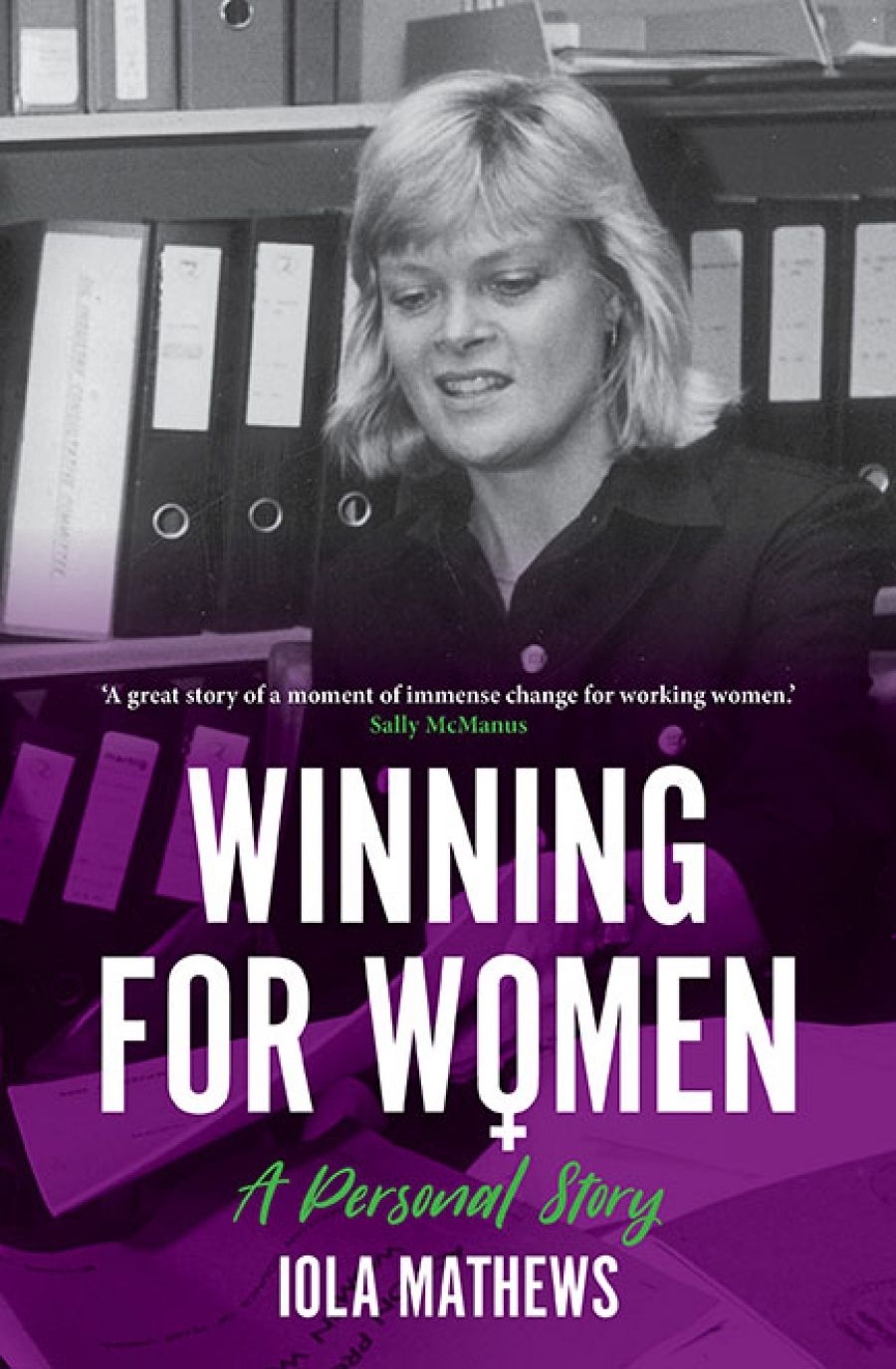
- Free Article: No
- Contents Category: Memoir
- Custom Article Title: Noel Turnbull reviews 'Winning for Women: A personal story' by Iola Mathews
- Review Article: Yes
- Online Only: No
- Book 1 Title: Winning for Women: A personal story
- Book 1 Biblio: Monash University Publishing, $29.95 pb, 328 pp, 9781925835151
Her father hoped that Mathews would go into the family patent/intellectual property profession, but, following university and taking after her father’s Scottish aunts, who were Australian pioneers in medicine, the law, and academia, she headed off to Paris. She lived in a tiny apartment above the Café de Flore, where Beauvoir and Sartre – now her heroes – had hung out. Beauvoir was now Mathews’s ‘idea of a liberated woman. I wanted to be like her, with a life dedicated to love, writing and idealistic causes’.
She achieved that, but the first stop on the way was as a cadet at The Age in the days when the few female reporters were expected to cover weddings and write for the women’s pages. Fortuitously, she was building her career – well beyond the women’s pages – during the era of Graham Perkin. Readers depressed by the current state of mainstream media and the decline of The Age ought to read the book’s sections on her career at, and resignation from, the paper. While we all bemoan the mainstream media’s obsession with political trivia, quoting talking points, and ‘gotcha moments’, Mathews’s career was part of the push to cover stories about things that counted – schools, women’s issues, community activism.
Politics was the first step in Mathew’s feminist career as part of the formation of the Women’s Electoral Lobby along with Beatrice Faust and others at a time when there was only one woman in all of Australia’s state and federal parliaments. After that came thirty-odd years in journalism, politics, trade unions, and the women’s movement. As an advocate for the ACTU, Mathews was part of a group that included not only trade unionists (notably ACTU Secretary Bill Kelty) but also politicians, academics, education, and community groups that achieved greater legal and workplace equality for Australian women.
If you want to understand how we got to where we are now, from the first feminist campaigns to today, there are many books that cover issues such as female representation in Parliament, affirmative action, discrimination in clubs and employment, equal pay, maternity leave, superannuation, equal opportunity, and child-care workers’ pay as they unfolded in Australia. But few encompass so many of these issues in the one book as Winning for Women does.
Mathews’s account of her first major appearance as the ACTU advocate at the (then) Australian Industrial Relations Commission on parental leave describes the physical, intellectual, emotional, and personal pressures that confronted her in this long legal process, which resulted in a huge win for parents. The detail of cases she developed, research she undertook in a wide range of areas, the people she worked with, the interactions with public servants, governments, and other women leaders demonstrate the far-reaching changes feminists achieved. Her generosity to the people she worked with – and only slightly acerbic views of those who were obstructive – is a welcome contrast to many other memoirs.
Of course, many of these changes were achieved in the face of intense opposition from conservative political parties, some women’s groups, employers, and old-style blokey trade unionists. Significantly, many of the changes were achieved when Labor governments were in power federally or at state level.
In Mathews’s case, the personal is political. She writes movingly and warmly about her family and her forty-six-year marriage to former Labor politician Race Mathews. She is frank about the demands on political wives with young children – especially when they are combined with professional careers of their own – and the emotional ups and downs of her personal and professional lives.
She mentions in passing her other writing: her excellent family history about her Quaker forebears in the early history of South Australia; and, her works on handling the media, which were cribbed by many a PR person in community groups, consultancies, and corporate and public sector PR.
The book ends with a call to action outlining practical policies that would achieve the next stages of gender equality at work and in the home.


Comments powered by CComment